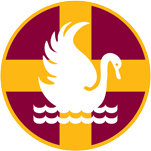CURRICULUM
Curriculum Introduction
Intent
Our children are entitled to grow into independent, confident adults who are well prepared for life in modern Britain and who can contribute positively to their community and to wider society. It is our responsibility to provide a fully inclusive, broad and balanced curriculum with a range of opportunities and experiences to all of our children regardless of their ability, background, religion, race or gender.
St. Hugh’s is a Catholic school which is underpinned by our Mission Statement. Our Catholic ethos and values are at the centre of our curriculum.
Mission Statement:
St. Hugh’s Catholic Primary School provides a welcoming, safe and secure environment for all. Our School aims to be a community, which reflects real gospel values of love and forgiveness. A community in which each individual, child or adult, can work in an atmosphere of mutual respect and understanding; so as to broaden their appreciation of the world, its cultures and its people.
Everyday …Growing in God’s Love
We offer the full National Curriculum entitlement with a strong emphasis on PSHE (Personal, Social and Health Education) and oracy:
- PSHE equips children with the knowledge and skills they need to manage their lives now and in the future. This helps them to stay healthy, safe and prepare them for life and work in Britain.
- Learners must be resilient, creative, independent and have strong self-esteem in order to achieve.
- The ability to communicate effectively is a key skill. To speak English fluently and articulately, to express ideas and interact with others is fundamental to academic success and to a good quality of life in general.
- There is robust evidence to show the link between the quality of classroom talk and attainment in core subjects. Poor oral language skills limit children’s attainment. Purposeful approaches to children’s oracy have been shown to impact positively on:
- Scientific understanding
- Mathematics
- Writing
- Reading Comprehension
- Reasoning
Children’s language development, vocabulary and communication skills are prioritised at all appropriate opportunities.
We aim to give the children a range of first-hand experiences through trips and visits, visiting speakers, drama groups and practical experiences. We believe these experiences bring the curriculum to life and root the children’s learning in real life experiences that they otherwise might not have had.
Implementation
Our curriculum has been carefully and deliberately designed to provide children with a rich body of knowledge with many opportunities for revision, revisiting, consolidation and enhancement.
Each subject is taught discretely and links have been made between subjects if/when they are appropriate. Learning objectives for each subject and each year group have been carefully sequenced for progression. PSHE is taught discretely and is woven through other subjects. It is a crucial part of our teaching to prepare children for life and work in the UK.
Learning is regularly revised and consolidated. Regular opportunities are provided for retrieval practice. At the beginning of each new topic, time is devoted to the activation of prior knowledge; key concepts and skills are revisited and consolidated. At the beginning of lessons, short bursts of revision takes place so that children have the opportunity to embed key learning and vocabulary. This is important for all children, but particularly those who have EAL, SEND or those who have missed parts of their education.
Oracy and vocabulary development are embedded in every subject. Children are given frequent opportunities to utilise the oracy techniques they have been taught in order to enhance their learning. Key words in every subject and year group have been identified and are taught and reinforced daily through a range of techniques.
A variety of teaching strategies is employed at St. Hugh’s. Staff tailor their teaching and resources to the content of the lesson and to meet the diverse needs of the children in their classes. An emphasis is placed on practical, visual, multi-sensory and collaborative activities to ensure that all children, regardless of ability and EAL, can take part.
As part of our curriculum teaching, we provide enhancement opportunities in the form of visits to relevant places of interest and we invite visitors/performers/speakers/experts in to widen the experience of children when they are in school.
We have assessment processes in place for each curriculum area. Children are informally assessed on an ongoing basis and teachers adapt their teaching as necessary. At least once each term, staff assess the children against the agreed learning objectives and record each child in each subject as working at age-related expectations, working towards age-related expectations or working below age-related expectations. This information is used to plan future teaching, next steps and interventions.
Impact
The impact of our curriculum can be partly measured through our assessment processes. If children are making at least good progress relative to their starting points then we know our curriculum and teaching is effective.
In order for our curriculum to have the impact we strive for, however, our children must leave the school as well-rounded, resilient and resourceful young people with a secure body of knowledge, understanding and skills they can take with them into secondary education and beyond. Therefore, assessment in isolation is not enough to determine the impact of our curriculum. We use assessment together with pupil voice, book scrutiny and observations of children’s skills. If children are able to demonstrate they can remember knowledge and can use skills they have been taught, we can be confident our curriculum is having impact.
We aim to evaluate and review our curriculum each year to ensure we are meeting the needs of all the children in our school.
